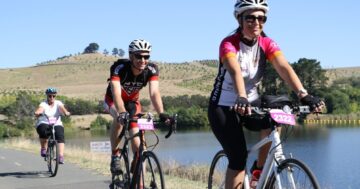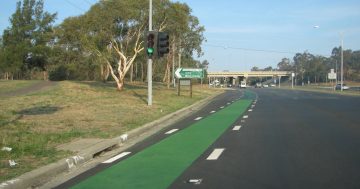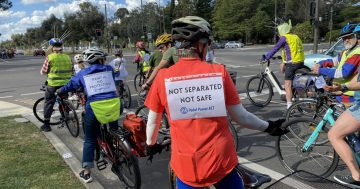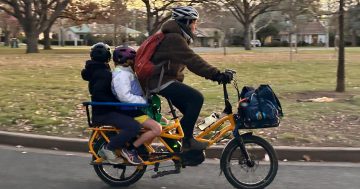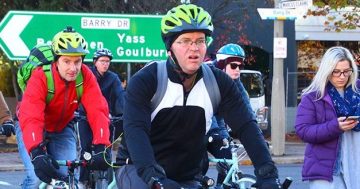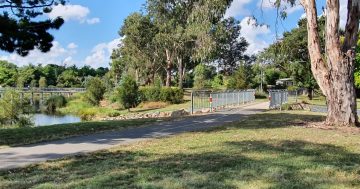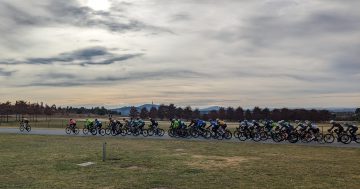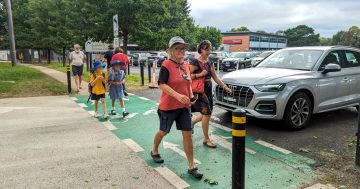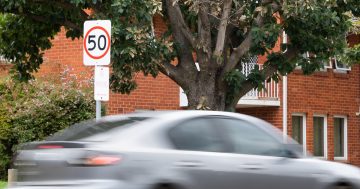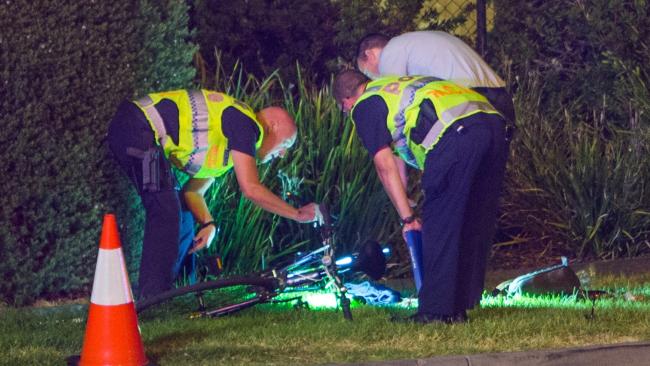
Infrastructure that separates bicycles from trucks and buses is the best way to avoid people on bikes being killed on ACT roads.
Last week, a young mother-of-two died while riding her bike in Melbourne, prompting calls for better bike lanes and more awareness of bicycles on the road.
Arzu Karakoc, whose daughters are aged 6 and 2, was only a short distance from home when a truck hit her in Yarraville, in Melbourne’s west, on Friday afternoon.
As the most vulnerable vehicles on Australian roads, bicycles are always at risk from other road users.
Canberra has high volumes of traffic on our roads, and the sheer size of trucks and buses means that often they find smaller road users like bicycles difficult to see.
Until the ACT Government commits to better cycling infrastructure, understanding between people who ride bikes and people who drive trucks and buses on Canberra roads is essential to prevent tragedies like the recent Melbourne death.
A meeting in Canberra recently brought together the two groups who don’t often meet face to face or see eye to eye. ‘Reducing the risks: cyclists, pedestrians, buses & heavy vehicles’ aimed to build understanding and cooperation between the groups around safely sharing the road.
“There’s a need to educate bike riders about riding safely on the roads, but it is clear that bus and truck drivers are really lacking knowledge about the rights of bike riders on the road,” said Pedal Power ACT advocacy officer Rachel Lynsky.
“People who ride bikes are particularly vulnerable on the roads, so they have to prioritise safety. If that means taking up a whole lane at a roundabout or merging into traffic to avoid glass in the cycle lane, that’s what they do. Sometimes this momentarily inconveniences other road users. But so do other cars, and motorbikes, and pedestrian crossings. Bicycles are just another part of the road system.”
To see leadership from ACTION and the heavy vehicle industry in ensuring the safety of vulnerable road users is commendable, but not revolutionary; it should be a normal part of everyday business.
In London, the trucking industry has been highly involved with cycling groups to improve conditions for cycling on the road since 2010. In Australia, Toll has been working with the Amy Gillett Foundation to educate their drivers about how to share the road safely with cyclists. In 2016 the Melbourne Metro Rail Authority developed a strategy to ensure bike safety.
That’s how Rachel found herself behind the wheel of a massive bus, driving right next to a truckie sitting on a bicycle.
Working with @TCCS_ACT drivers and heavy vehicle drivers on #pedestrian and #cyclist safety. Thanks @ACTPedalPower @HeartAust @KidSafe pic.twitter.com/izrNSL3p6z
— Dr Anthony Burton (@ABandAssociates) February 21, 2017
“It’s actually really challenging to judge the metre overtaking distance in a bus,” said Rachel. “You have to physically move in the driver’s seat to be able to see your mirrors, and to see the bikes next to you.”
Despite the difficult conditions, Rachel described the practical experience as a highlight of the forum.
The understanding that dawned on bus drivers about how vulnerable bike riders can feel while riding in a cycle lane next to a huge vehicle was far more useful than the hours spent discussing the issues.
Talking is ineffective when representatives from the biggest trucking and public transit organisations in the ACT do not regard bicycles as a vehicle with a right to be on the road.
“One of the bus drivers was concerned about what happens to bikes when the bike lane just suddenly ends,” said Rachel. “They said, ‘the bike is in our lane of traffic – there’s nowhere for the bike to go’, and we had to explain that in this situation, a bike is just another vehicle on the road merging into a lane of traffic.”
Everyone who uses ACT roads would benefit from the heavy vehicle industry and government taking a leadership role in promoting understanding about sharing the road with vulnerable users.
The community benefits by having more people on bikes. People who ride increase workplace productivity, and save the public long-term health costs. More people on bikes mean fewer cars on our roads, and less congestion and pollution. Bus drivers and truckies want to be able to do their jobs efficiently, and more bikes and less car traffic in Canberra will improve their productivity enormously. And ultimately, it will help prevent bike riders dying on our roads.
Anne Treasure is the Communications Manager for Pedal Power ACT. She writes on bike riding in the ACT from the perspective of a lapsed bicycle rider who should be cycling more.












